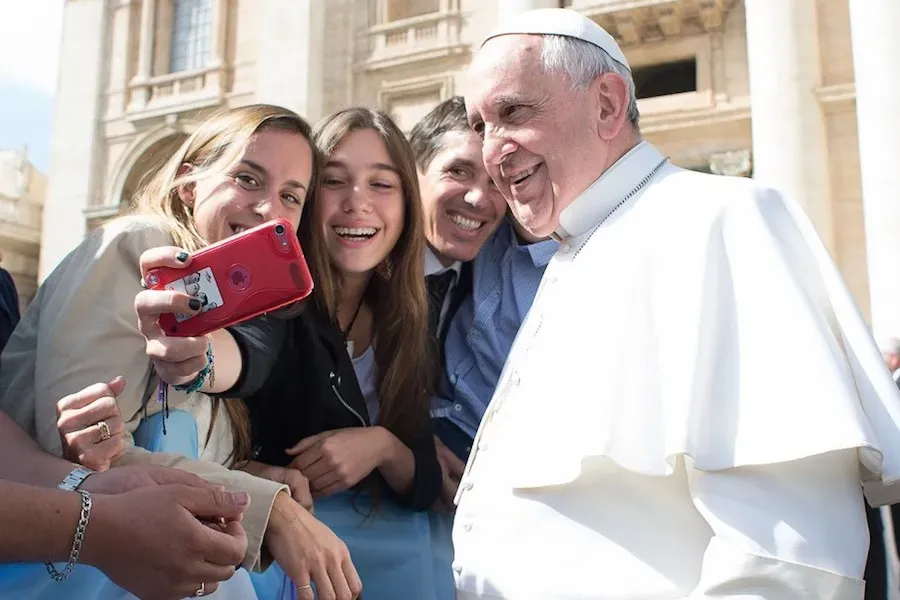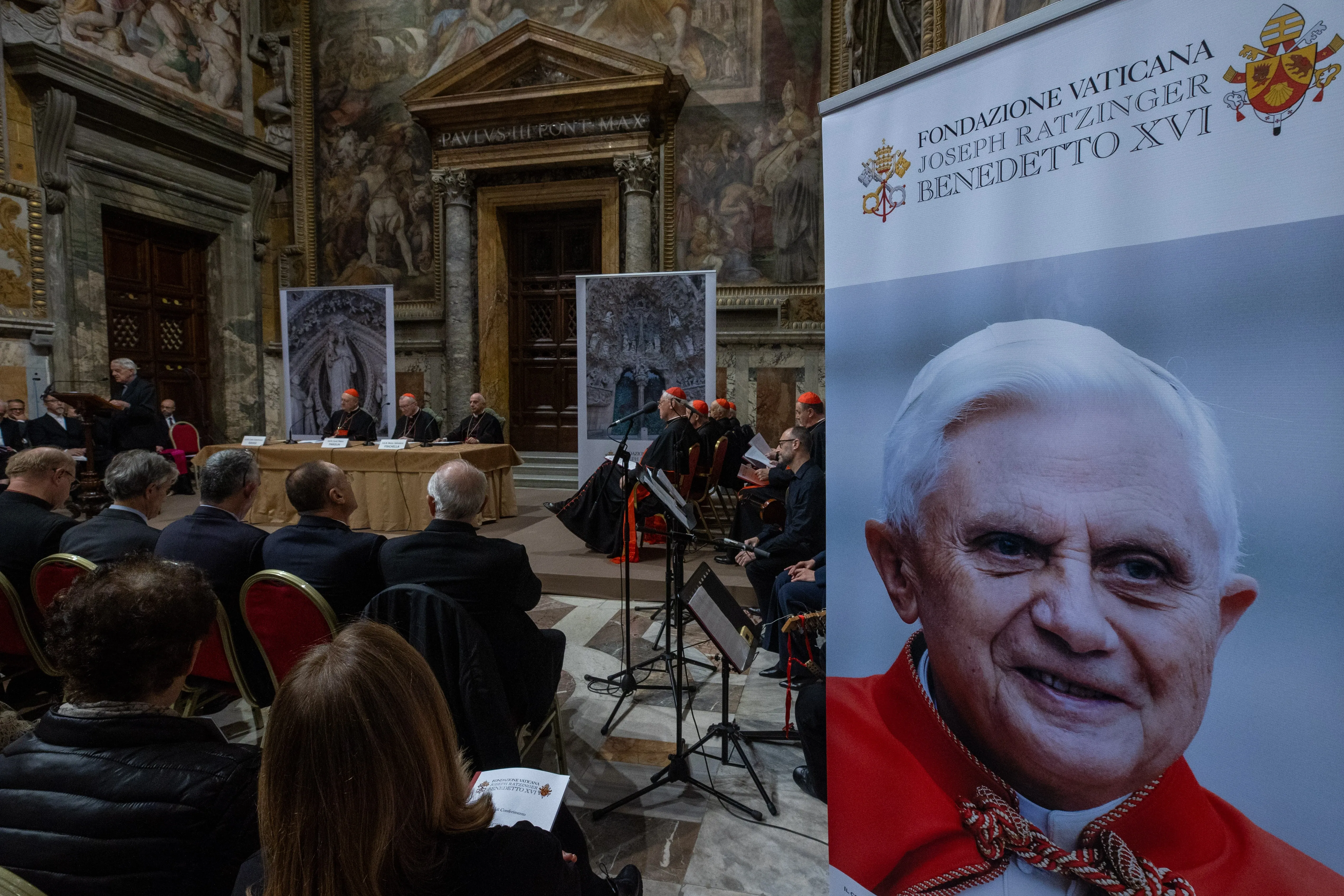“It is the age of liquidity,” he said.
He suggested that the current “fluidity” is a marked difference from the time of the Second Vatican Council, when a secular, immanentist, materialist humanism at least shared a common basis with Christian humanism “on some radical questions related to human nature.”
“However, the conciliar Constitution Gaudium et spes is still relevant in this respect. It reminds us, in fact, that the Church still has much to give to the world, and it obliges us to acknowledge and evaluate, with confidence and courage, the intellectual, spiritual, and material achievements that have emerged since then in various fields of human knowledge,” the pope commented.
The Pontifical Council for Culture held its plenary assembly this week with the theme “Rethinking Anthropology — Toward a New Humanism.” The council holds the assemblies every two or three years to reflect on major issues and cultural realities in contemporary societies.
In his video message, the pope said that questions about human identity are being posed in a decisive manner in the 21st century.
“What does it mean today to be a man or a woman as complementary persons called to relate to one another? What do the words ‘fatherhood’ and ‘motherhood’ mean?” he asked.
“And again, what is the specific condition of the human being, which makes us unique and unrepeatable compared to machines and even other animal species? What is our transcendent vocation? Where does our call to build social relationships with others come from?”
Pope Francis pointed out that the Bible offers “the essential coordinates to outline an anthropology of the human person in relation to God, in the complexity of the relations between men and women, and in the nexus with the time and the space in which we live.”
“Biblical humanism, in fruitful dialogue with the values of classical Greek and Latin thought, gave rise to a lofty vision of the human person, our origin and ultimate destiny, our way of living on this earth,” he said.
The pope added that, while this fusion of ancient and biblical wisdom remains “a fertile paradigm,” a new creative synthesis is also needed with “the contemporary humanistic tradition and that of other cultures.”








